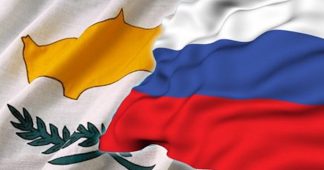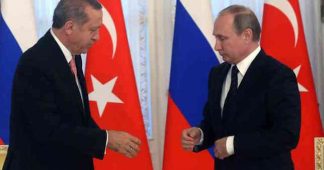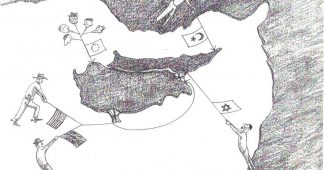By Doctor William Mallinson*
Athens, 7 April 2018
Ever since at least 1791, when English Prime Minister William Pitt the Younger denounced Russia for seeking to dismember the Ottoman Empire, the world has been burdened with the Cold War. Britain was worried about Russian power in the Eastern Mediterranean, since she was paranoid about protecting her route to India and the Suez Canal. The obsession continued, with Greece as a victim.
Britain was forced to recognise Greek independence following Russian intervention, but managed to keep its finger in Greece as one its ‘protectors’ (In fact, Greece was to remain a de jure protectorate until 1923). Now it is still a de facto one, under NATO tutelage. In 1841, the British Minister to Greece said: ‘A truly independent Greece is an absurdity. Greece can either be English or Russian, and since she must not be Russian, it is necessary that she be English’. Then we have the Don Pacifico Affair, when Britain sent gunboats to threaten Greece, followed by the Crimean War, when Britain blockaded Piraeus. And during the Great Eastern Crisis, Britain grabbed Cyprus. Then, in 1917, Britain recognised the illegal government of Venizelos, thus forcing Greece into a war that was to prove catastrophic, ending with the mass slaughter and expulsion from Asia Minor of around one and a half million Greeks.
Behind Britain’s imperial strategy lay its support of the Ottoman Empire and obsession with Russia. This was to continue through the dreadful Greek Civil War, caused in part by Churchill’s obsession with having a Greek king, even though it was known that most Greeks were not in favour, but also caused by Britain’s obsession with Russia. Yet the Foreign Office had admitted that Moscow was not interested in controlling Greece. At that point, in 1947, Britain brought in the USA. Hence the Truman Doctrine, when Greece was literally forced to be anti-Russian.
Jump to recent times, and we can see that little has changed substantively. There are simply new colours: Britain and the US support Turkey strategically (whatever the childish rhetoric about freedom of speech in Turkey, and Turkish pseudo-love for Palestinians), and are obsessed with keeping Russia out of ‘their’ Eastern Mediterranean fiefdom. Turkey is still ready to co-operate militarily with the Jewish State, at US instigation, at least backstage: their secret agreement, dating from the late Fifties, still exists.
There is however now a possibility that matters could alter dramatically: given that Russia is involving itself more seriously in the Middle East, and by extension in the Eastern Mediterranean, a Russian-led solution could be found to stop Turkey’s constant military threats against Greece, threats which are in essence ignored by NATO.
This is where the dreadful word ‘interests’ enters into play: Britain and the US, currently supported by a slavish France, wish to control the Eastern Mediterranean and create tension with Russia. Russia wishes to weaken NATO and maintain and enhance its influence in the Eastern Mediterranean. Hence Moscow’s current kindness towards Turkey. If its S-400s really are delivered to Turkey, this will represent a major strategic coup for Moscow, and a setback for the NATO business machine.
Greece will then be presented with a stark choice: will she be pulled further into the NATO anti-Russian camp, or will she have the courage to ask Moscow for some S-400’s? The Greek-Turkish arms market is a highly lucrative one for the US, mainly, but also for France and Germany. Were Russia to be the major arms supplier to Greece and Turkey, the backstage diplomacy would undoubtedly involve Greece – and Turkey – leaving at least NATO’s military integrated structure, as Greece did for six years following the invasion of Cyprus. If Turkey is serious about the S-400s, and does not perform one of its traditional about-turns (despite money already committed), then some serious Greek-Turkish-Russian diplomacy is in order.
The medium- and long-term solution is for Russia to control Greek and Turkish arms sales and, in return for more access to Greek military space, and Greece leaving the integrated military structure of NATO, Russia could then sort out the ludicrous Turkish claims to Greek islands. The problems are the prostitute elements of Turkish policy, and the Greek NATO fanatics, as well as intense American pressure. But were Moscow to succeed in having a large stake in the arms market, and gain a base in Greece and Turkey, with Greece and Turkey leaving NATO’s integrated military structure, then more stability in the Eastern Mediterranean could result.
If Turkey really does end up with the S-400, and Greece does not, then Turkey will continue to threaten Greece’s islands, with Moscow continuing to laugh about the instability of NATO’s southern flank. So whatever happens, Moscow wins.
Cyprus is another kettle, of course, although the potential linkage is there. But that’s for another article.
* Professor of Political Ideas and Institutions, Universitá Guglielmo Marconi










